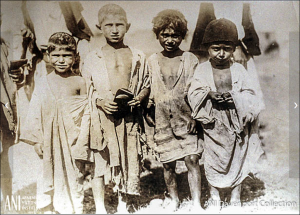
Hello Matadors,
April 24 is Armenian Genocide Remembrance Day which commemorates the victims of the Armenian Genocide and offers us the opportunity to recognize and mourn the 1.5 million Armenian lives lost due to ethnic cleansing. The following digital exhibits and resources provide important historical documentation into the massacre and atrocities that took place against the Armenian people from 1915-1923.
The United States Military in the First Republic of Armenia 1919-1920 is a 27-panel exhibit that documents the extent of U.S. humanitarian intervention during the most difficult years in the life of the newly formed Armenian state (the First Republic of Armenia), which provided refuge to thousands of survivors of the Armenian Genocide. Based upon the photographic collection of an American medical officer, Dr. Walter P. Davenport, the exhibit reveals the depth and breadth of measures taken by U.S. military personnel to stabilize the humanitarian crisis in Armenia, and especially the caretaking of the most vulnerable part of the population through hospitals, orphanages, food distribution points, and other facilities.
The digital exhibit, Iconic Images of the Armenian Genocide curated by Dr. Rouben Adalian, Director of the Washington, DC Armenian National Institute (ANI) provides additional historical record of the crimes committed against the Armenian people and the suffering that took place. (Note: Some images are graphic). A Spanish language version of the ANI website is also available.
Finally, the online Armenian Genocide Museum of America (AGMA) features stories and galleries depicting the history and legacy of the genocide.
Additional resources below chronical the historical significance of the Armenian Genocide and commemorate the experiences of the lives lost and those who continue to be impacted by the Armenian Genocide. All of these resources are accessible through the University Library, LAPL, or LA County Libraries.
Books
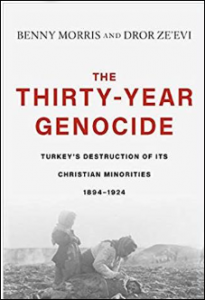 The Thirty-Year Genocide: Turkey’s Destruction of its Christian Minorities, 1894-1924 by Benny Morris and Dror Ze’evi
The Thirty-Year Genocide: Turkey’s Destruction of its Christian Minorities, 1894-1924 by Benny Morris and Dror Ze’evi
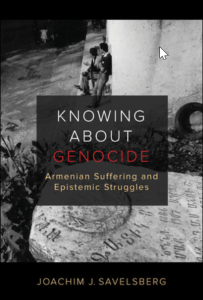 Knowing about Genocide: Armenian Suffering and Epistemic Struggles by Joachim J. Savelsberg
Knowing about Genocide: Armenian Suffering and Epistemic Struggles by Joachim J. Savelsberg

The Sandcastle Girls (University Library) or The Sandcastle Girls (LAPL) by Chris Bohjalian
Films
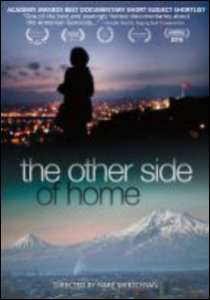 The Other Side of Home (LAPL) The Other Side of Home (LA County Libraries)
The Other Side of Home (LAPL) The Other Side of Home (LA County Libraries)
An additional film, the documentary What Will Become of Us, about the impact of the Armenian Genocide on several generations of Armenian Americans, is not yet widely available. Check the What Will Become of Us website for information about screening opportunities.
Twitter handles
@ArmNatInstitute
@ArmGenocide100
@ArmenStudies
A special thanks to Mihran Toumajan, Western Region Director of the Armenian Assembly of America and to Dr. Rouben Adalian, Director of the Armenian National Institute for providing the content for this post.


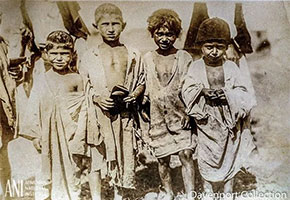
 The Cut
The Cut Ararat
Ararat